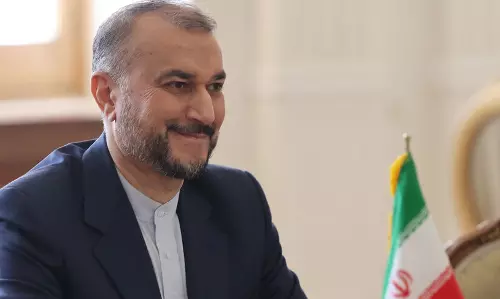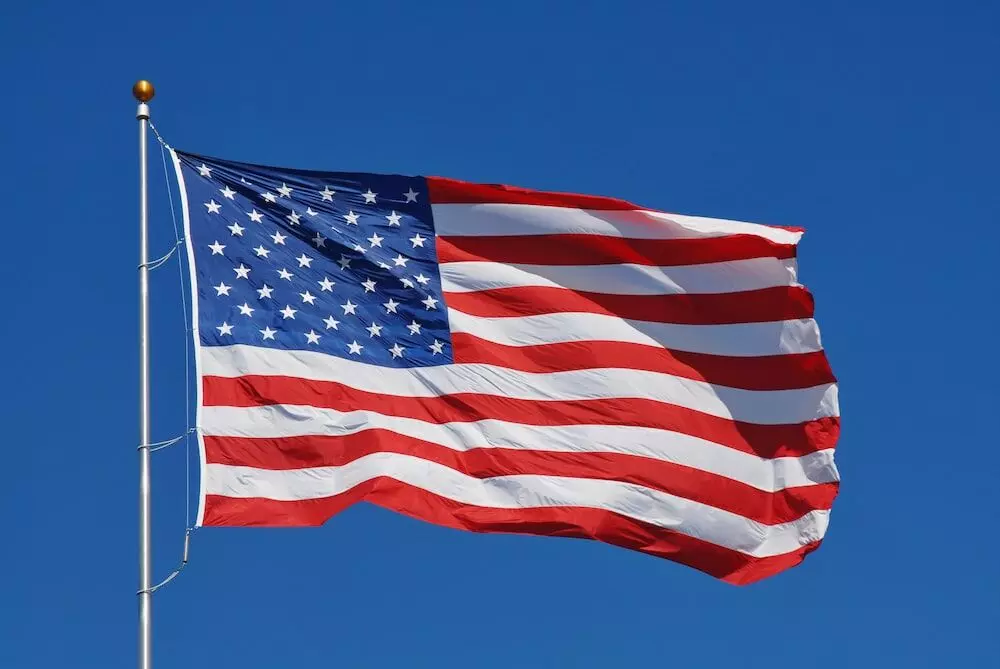
Decline of the US hegemony
text_fieldsPolitics wherever it be, is power. Superior military domination, economic power, political clout, and cultural heritage are ingredients that flavor politics. The term unipolar system refers to an international system using a single centre of power. It is also often referred to by the term ‘hegemony’.
Hegemony is a Greek term that means leadership or predominance of one single state which was originally used to indicate the preponderant position of Athens over other city-states of ancient Greece. It is now used to describe the military preponderance of the super powers in world politics.
The phrase "new world order" was at first used in the period toward the end of the First World War in relation to Woodrow Wilson's vision for international peace. He thought that the League of Nations could prevent aggression and future conflict. But, the League of Nations failed. Then, after a long lapse of time, the same phrase "New World Order " was used in the famous speech in 1991 by George Bush. It was during the build-up to the Gulf War. America promised a world without wars (after the Gulf War) without dictatorships .
After the fall of Stalinism, US imperialism really thought that the world would be firmly under their command and they would be able to dictate the destiny of every country. Now all these dreams, as we know, have been reduced to rubble.
The history of the United States is characterized by violence and expansion. Since it gained independence in 1776, the US has constantly sought to spread its influence by force. In June 1812, President James Madison and the so-called War Hawks in Congress urged the country to go to war. It was an offensive for the land invasion of Canada. In 1846, the United States Congress declared war on Mexico . Then, on May 26, 1848, both sides ratified the peace treaty that ended the conflict. As a result , the Republic of Texas opted to join the United States.
Then, the American-Spanish War took place and Hawaii was annexed to the US. Everybody knows what happened in Hiroshima and Nagasaki during World War II. After this wars, the wars either provoked or launched by the United States included the Korean War, the Vietnam War, the Gulf War, the Kosovo War, the War in Afghanistan, the Iraq War, the Libyan War and the Syrian War, using its military hegemony for expansionist objectives. In recent years, average annual military budget of the US has exceeded 700 billion U.S. dollars, accounting for 40 percent of the world's total, of more than the 15 countries behind it combined. The United States has about 800 overseas military bases, with 173,000 troops deployed in 159 countries.
Mike Pompeo, the four-year national security member of President Trump’s Cabinet, worked to impose crushing pressure on the Islamic Republic of Iran and averted a nuclear crisis with North Korea. But, he was known for his unwavering support for Israel with the claim that it would bring peace to the Middle East. He justified himself claiming his strong commitment to America’s founding principles and his deep-rooted Christian faith . His efforts to promote Jewish religious bigotry was unequaled in American diplomatic history. His book "Never Give an Inch " tells how he helped the Trump Administration craft the America First approach that upended Washington's wisdom. It became the worst nightmare. of America's worst enemies. The book contains remarkable and often humorous stories of his interactions with world leaders and unmatched analysis of geopolitics.
A South China Morning Post' columnist, Alex Lo, has pointed out that the United States rarely distinguished between diplomacy and war since its founding. Democratically elected governments in many developing countries were overthrown by the US and they were replaced with pro-American puppet regimes.
Today, in Ukraine, in broad daylight, they are doing the same. In Iraq, Afghanistan, Libya, Syria, Pakistan and Yemen, the United States played these tactics. Military hegemony always causes humanitarian tragedies. Since 2001, the wars and military operations launched by the United States in the name of fighting terrorism have claimed, according to the columnist, over 900,000 lives with some 335,000 of them civilians. It injured millions and displaced tens of millions.
The 2003 Iraq War resulted in some 200,000 to 250,000 civilian deaths, including over 16,000 directly killed by the U.S. military, and left more than a million homeless. The United States, as per the studies, has created 37 million refugees around the world.
The two-decades-long war in Afghanistan is a story of horror that devastated the country. A total of 47,000 Afghan civilians and 66,000 to 69,000 Afghan soldiers and police officers were brutally killed in the clashes. They had nothing to do with the September 11 attacks.
The war in Afghanistan destroyed the foundation of economic development there and plunged the Afghan people into destitution. After the "Kabul debacle" in 2021, the United States announced that it would freeze some 9.5 billion dollars in assets belonging to the Afghan central bank . This move is observed as nothing but "pure looting." The United States does whatever it can to rob and enslave the people of any country with underground resources.
Mohamed El Mansour, an influential Moroccan historian provides a history of the role of the United States in the Middle East and North Africa. According to him, the United States refrained from intervention in the Middle East region up to World War 1, mainly because they wanted to avoid competing with British interests there. Oil exploration was also at its beginnings and British Petroleum had its monopoly. The U.S. made a favorable image as they had no imperial designs in the region. It was during the 1930s that the U.S. moved to compete with the British in the field of oil exploration. As the world learned more about the value of oil as a significant, long-term source of energy, American oil companies became increasingly motivated to push for a share in prospecting and exploiting overseas resources. To avoid coming into friction with the British in Iran, the U.S. chose to concentrate on Saudi Arabia where they acquired oil concessions in return for U.S. military protection.
After the Second World War, as the Soviet Union and the U.S. emerged as the two main global adversaries, Washington adopted a strategy designed to deter the Soviets from further expansion and to deprive them at the same time from vital oil resources in Iran and elsewhere in the region. This strategy, known as the Truman Doctrine, essentially aimed at defeating the Soviets by whatever means possible, short of direct military confrontation. For the Middle East this strategy meant that the U.S. would fill in the vacuum left by the two old colonial powers, France and Britain. Thus the U.S. embarked on open diplomatic and military interventionism in the Middle Eastern region.
Anti-communist conservative rulers and their peoples welcomed the US intervention .For Washington it made no difference whether the governments were theocratic, autocratic or democratic, as long as they were anti-communist and willing to side with the West.
Zionist leaders like Ben Gurion worked actively during the war to win over the support of both the American administration and the American Jewish community. In 1946 Washington demanded the immediate entry into Palestine of 100,000 survivors of the Holocaust. It is to be noted that the Europeans and the United States refused to admit them on their territories. Once the British decided to hand over the Palestinian issue to the United Nations, the U.S. became the main supporter of the Zionist cause. In 1948 they were the first to recognize the newly created state of Israel. Henceforth the security and survival of Israel became one of the pillars of U.S. policy in the Middle East, because for many Americans, Israel represented part of their culture and a Western presence in an alien and threatening region. During the fifties, with the radicalization of Arab nationalism (Nasserism and Baathism), the objective of American policy in the region consisted in enabling Israel to maintain a strategic edge over its Arab neighbors through massive financial and military assistance.
The turning point came with the Arab-Israeli war of 1967 which resulted in Israeli occupation of more Arab land, not only at the expense of the Palestinians, but also at the expense of countries such as Egypt, Jordan and Syria. Dozens resolutions by the UN called for the withdrawal of Israeli forces from the Arab occupied territories. It did not prevent Israel from pursuing its policy of annexation and expropriation of Palestinian lands. The American administration, especially under the Republicans, tended to endorse Israel’s policy of settlements in the West Bank and in the Gaza strip.
Despite the illegal character of these settlements under the Fourth Geneva Convention of 1949, the U.S. never challenged Israeli policy in this regard and continued to provide Israel with financial assistance that was used in the building and expansion of settlements. This attitude resulted in Israel’s taking over more than half the West Bank, not to mention the annexation of Eastern Jerusalem. The U.S strategic partnership with Israel has been crucial in enabling the Jewish state to defy UN resolutions and defeat any attempt to settle the Palestinian question. What angers the Arabs most is double-standard in U.S. policy -- one for Israel and another for Arab countries. In fact the U.S. have always been reluctant to pressurize Israel to comply with UN resolutions concerning the occupied territories while it showed a firm determination to implement international resolutions pertaining to Arab countries. This was particularly clear in the case of Iraq after it invaded Kuwait in 1990. The double-standard policy can also be seen in the way Washington has dealt with the issue of Weapons of Mass Destruction in the region. While the U.S. administration is insisting on ridding the Middle East region of such weapons, it never mentions Israel’s holding of nuclear armaments.
This policy has largely contributed to the growth of anti-American sentiment in the region and fueled Islamic radical groups.
During Donald Trump’s Administration, several Jews were appointed in key positions in the State Department’s Office of Near Eastern and South Asian Affairs, reinforcing the Arab belief that US foreign policy was completely dominated by the pro-Israel lobby. Though late, Arab leaders, especially the Saudi leadership realized the facts that helped redraw the map of its international strategic alliances.
Saudi Arabia changed its stance into the trenches of China-Russian alliance and now seems to support a multipolar world . Joe Biden is doing his best to lure the Saudi leadership back into its fold. But, Anthony Blinken, for all his persuasive tricks failed to achieve most of his objectives and returned to Washington depressed.
The power of the West has much to do with the imposing authority of its news media, which for many years dictated perceptions across the globe.
The coup of the Wagner group, under Yevgeny Prigozhin, inflated by the Western media thought to constitute the greatest challenge to President Putin, has failed faster than expected. President Putin enjoyed the support of the head of the Orthodox Church, all army leaders, and the leaders of the republics of the Russian Federation, especially the leader of Chechnya, Ramzan Kadyrov, the President of Belarus, and the Turkish President Recep Tayyip Erdogan. President Joe Biden, on the other hand, seems lost. He was once a sharp-witted political leader, but age has undermined that edge. You cannot continue to be the leader of any world if your society erodes and your leadership is divided, indecisive and weak. Nor can you lead when the media you once touted as a powerful weapon of truth has been turned into an instrument of weaponized political partisanship, driven more by profits than principles. Free speech is dead in America and has been replaced by “loud speech.” America has never been weaker in its relatively brief history than it is today. .
























